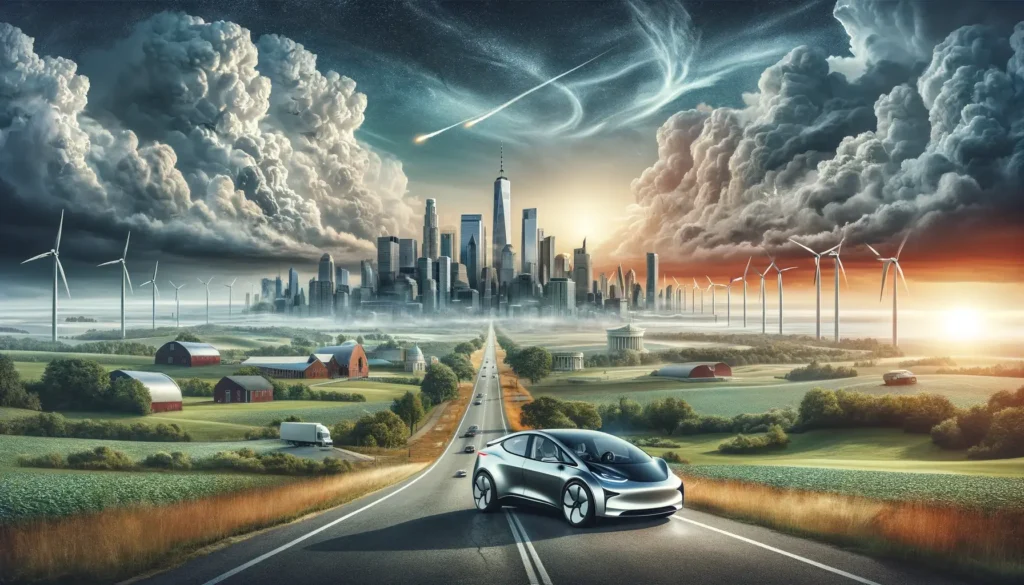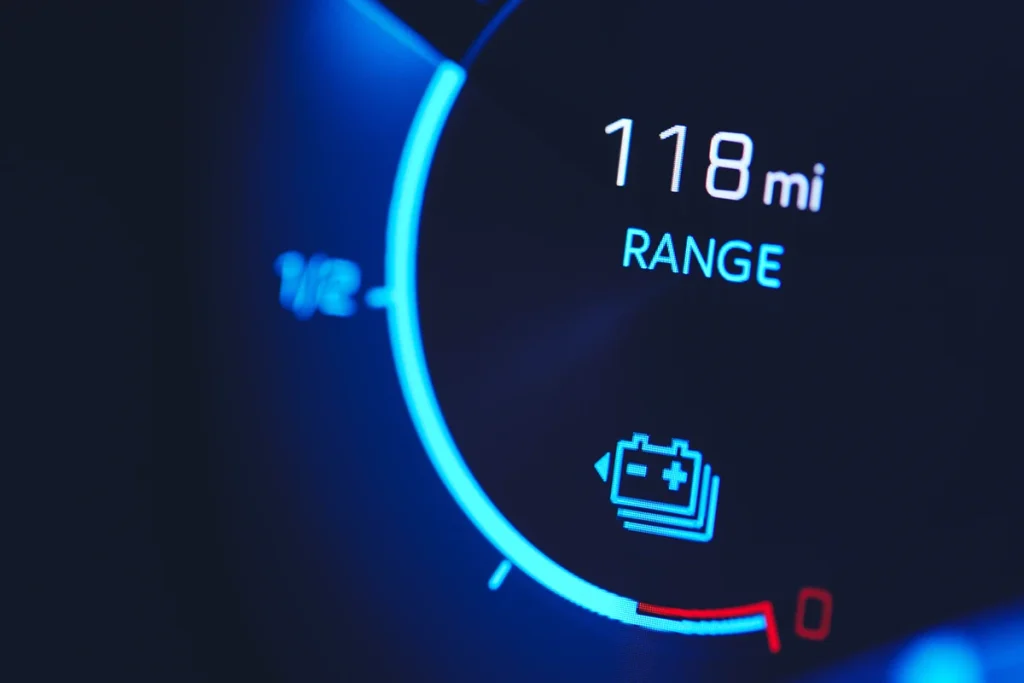The electric vehicle (EV) market in the United States has seen significant growth in recent years, thanks to falling costs, increased vehicle availability, and government and manufacturing investments. However, the future of EV growth in the country is uncertain, as it is heavily influenced by the policies and incentives put forth by the government. With this in mind, it is essential to analyze the potential impact of different presidential candidates on EV growth.
Trump’s Skepticism and the Slow Evolution of EVs:
Donald Trump’s skepticism regarding electric vehicles was evident during a Detroit rally, where he deemed them “too expensive” and suggested they “don’t go far enough.” Despite these assertions, consumers are increasingly embracing EVs due to falling costs, a broader range of vehicle options, and substantial government and manufacturers investments.
However, EV adoption remains sluggish, constituting just 7.2% of the market last quarter, up from 5.7% a year prior. The article investigates EVs’ slow uptake, exploring Cox Automotive’s data and questioning whether organic demand alone is sufficient to justify automakers’ massive investments in EV technology.
The Biden Administration’s Role in EV Growth
In contrast to Trump’s stance, President Joe Biden has set ambitious goals for adopting electric vehicles in the US. The Biden administration aims to have electric vehicles account for up to two-thirds of new cars sold in the country by 2032. This target will be achieved through a combination of tax incentives and stricter fuel efficiency standards.
Biden’s Environmental Protection Agency (EPA) is working towards tightening pollution standards for cars and trucks, aiming to reduce America’s largest source of planet-heating gases. The administration has outlined a plan to cut vehicle emissions, with Biden expected to sign an executive order demanding that 50% of all new cars and trucks sold by the end of the decade be powered by electric batteries.
Additionally, the EPA and the US Department of Transportation unveil new fuel efficiency standards for vehicles, bolstering pollution rules weakened under the Trump administration. These standards require new cars to emit 10% less greenhouse gas emissions than the previous year, with further reductions mandated until 2026.
The Biden administration’s strategy involves collaborating with major car manufacturers and hopes to be paired with a new infrastructure bill to fund a major upgrade in electric charging points across the US. The administration estimates that these measures will reduce CO2 emissions by 2 billion tons, save 200 billion gallons of gasoline, and provide fuel savings for drivers.
The Impact on the Auto Industry
The potential impact of different presidential candidates on the EV industry is significant. A sudden shift in policy, as seen in the case of Trump’s rollback of clean car standards, can have far-reaching consequences for automakers. The industry requires stability and a clear direction in order to plan and invest in EV technology.
While Trump may have denounced EVs, many lawmakers within his party have capitalized on the investments in the industry and embraced the transition. More than half of new clean energy projects announced since the passage of the Infrastructure Investment and Jobs Act have been located in GOP-led districts.
States like Georgia, with its Republican Governor Brian Kemp, have seen a surge in EV job announcements and have positioned themselves as leaders in electric mobility. This highlights the potential for bipartisan support and collaboration in driving EV growth, irrespective of the presidential candidate.
The Need for Swift Action
Although the Biden administration’s measures are seen as a positive step towards EV growth, some climate advocates argue that they do not go far enough. They believe that a faster transition to electric vehicles is necessary to meet climate goals, reduce pollution, and create more jobs in clean energy sectors.
President Biden has set a goal for the US to achieve net-zero emissions by 2050, which experts suggest can only be accomplished if gasoline and diesel car sales are phased out by around 2035. Campaigners are urging the president to accelerate the transition away from internal combustion engines and champion a more rapid adoption of electric vehicles.
Final Thoughts
The growth of the electric vehicle industry in the United States is heavily influenced by the policies and incentives put forth by the presidential administration. While the Trump administration expressed skepticism towards EVs, the Biden administration has set ambitious goals for EV adoption. It is working towards creating a supportive environment for the industry to thrive.
The influence of potential presidential candidates on EV growth cannot be underestimated. Stability and consistency in policies are crucial for automakers to plan and invest in EV technology. While the Biden administration’s measures are seen as a positive step, some advocates argue for a faster transition to electric vehicles to meet climate goals and create more jobs in the clean energy sector.
Ultimately, the potential for EV growth in the US lies not only in the hands of the presidential administration but also in the collaboration between lawmakers, car manufacturers, and the public. A bipartisan approach that prioritizes the long-term benefits of EV adoption can pave the way for a sustainable and prosperous future in the automotive industry.


